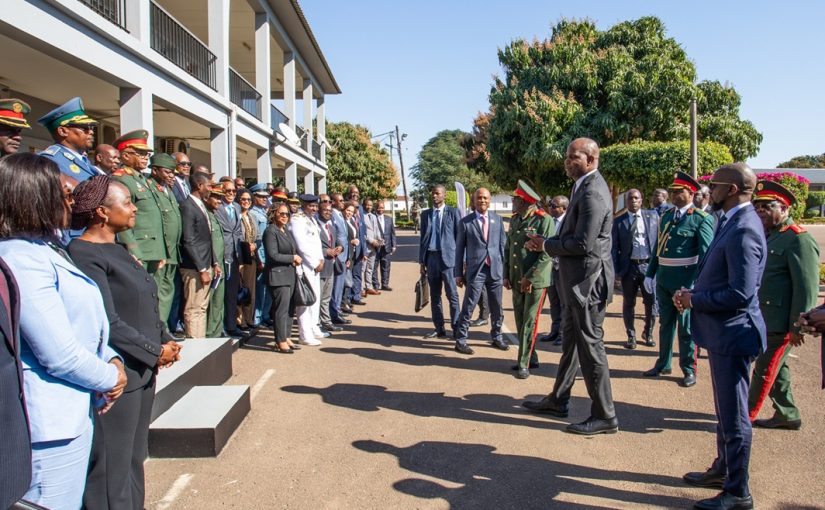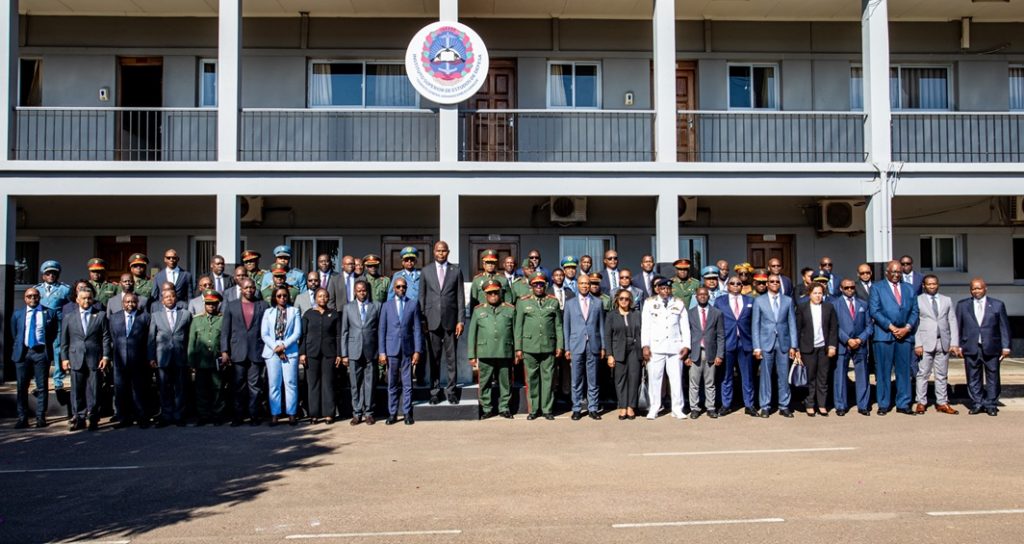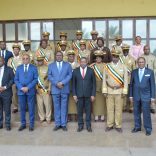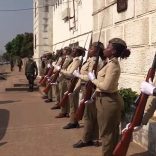Maputo city community leaders meet Chief Charumbira, aspire for parliamentary representation ...
Mozambique: National security “the task of all Mozambicans”

Photo: Presidency
National security “is the task of all Mozambicans”, declared President Daniel Chapo on Thursday.
Giving the inaugural lecture at a national defence course, held at the Higher Institute of Defence Studies in Maputo, Chapo said that nowadays the concept of “national defence” is not limited to the use of military force.
“Today it requires integrated approaches that involve intelligence, diplomacy, the economy, environmental, social and technological questions and civil preparation, since the protection of a country is a collective responsibility of all of us, and not just the military”, he said.
The national defence course, Chapo continued, meets current security challenges “because we are witnessing a reconfiguration of the World Order, marked by the resurgence of divergent poles of power between the West and the so-called Global South. The architecture of global security is being shaken by conflicts in Europe and the Middle East”.
He added that “the technological revolution presents a new threat to state sovereignty, demanding that we be ever more attentive and prepared”.
Inside Mozambique, “we are dealing with threats that include terrorism, drug trafficking, trafficking in people, the proliferation of transnational criminal organisations, and extreme climatic events”.
“Recently we were the victims of violent and illegal demonstrations which left a trail of death, injury and destruction, which demonstrates the complexity of the national security situation we are facing”, Chapo declared, referring to the wave of unrest and rioting which followed the declaration of results from the October general elections, widely believed to be fraudulent.
These threats, said the President, “challenge our defence and security forces to adopt innovative and effective approaches, doing things in a different way to achieve different results”.
Chapo asked his audience to consider what position Mozambique should take towards the changes in global security, and how lack of security in other parts of Africa might affect the stability of Mozambique.
He asked how the Mozambican forces could improve the security of Mozambicans and how participants in the course could contribute to fighting against the main security threats.
Chapo said the course should provide “essential tools for strengthening and consolidating the power of the Mozambican State”
“We must build a strong military power, which is credible and understood by everyone, through excellent, science-based training, adequate equipment, and efficient logistics”, he continued. “This is the way to improve our capacity to defend the highest interests of the state, to support international peace-keeping operation, and to support socio-economic development initiatives”.













Leave a Reply
Be the First to Comment!
You must be logged in to post a comment.
You must be logged in to post a comment.